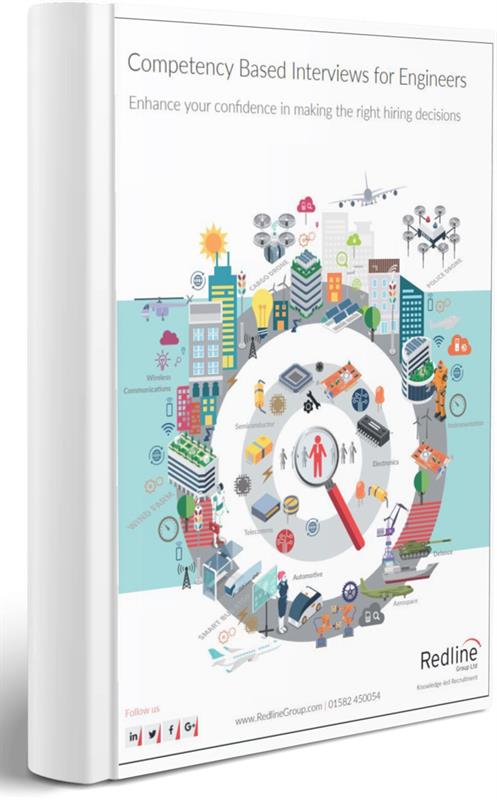With 46% of engineering employers reporting recruitment difficulties in 2017, and with the market expected to tighten even further in 2019, employers should seek to develop the recruitment process and enhance hiring decision making. A ‘bad hire’ at mid-manager level could end up costing organisations more than £132,000.
Competency-based assessment is not commonly used in the engineering and technology sector for selection purposes, however, it’s one of the most effective tools that can be applied during the candidate screening process to predict performance enablers and help an organisation manage talent and articulate a unified, scientifically valid understanding of a high potential talent pool.
A competency-based interview places an emphasis on an engineer’s past situational or behavioural experience. Suppose you are trying to judge if an engineer has potential leadership skills, especially if the engineer can eloquently express their skills in this area. As a hiring manager, you should ask questions like: “Tell me about a time where you were faced with ensuring your team completed multiple project deadlines. What did you do and how did it turn out?” or “Tell me when you had to manage or resolve a conflict between two or more co-workers. How serious was the conflict?” or “Tell me about a project you feel you planned for your team successfully. What made it a success?”
The benefits of adding a competency-based assessment during the interview process range from eliminating bias in the hiring process to decreased employee turnover rates. Competency based recruitment and selection systems often empower hiring managers with additional information to make smarter hiring decisions. The selection process concentrates on the commitment to bringing clarity in selection and recruitment procedures. The competency-based approach negates gut feelings from any party involved in the recruitment or interview process as the selection procedure is governed by objective analysis.
 Every high-tech employer seeks engineering talent whose expertise lies in their chosen technical discipline, but other skills and competencies can be just as important, such as communication, organisational and interpersonal skills, innovative thinking, problem-solving etc. A potential engineering candidate must be able to draw upon real situations and examples to highlight those skills. For example, communication may be critical to work with internationally based research and development teams or to work between cross-functional teams.
Every high-tech employer seeks engineering talent whose expertise lies in their chosen technical discipline, but other skills and competencies can be just as important, such as communication, organisational and interpersonal skills, innovative thinking, problem-solving etc. A potential engineering candidate must be able to draw upon real situations and examples to highlight those skills. For example, communication may be critical to work with internationally based research and development teams or to work between cross-functional teams.
“Often technical orientated decision makers focus entirely on technical tests and related criteria when making a hiring decision,” says Adam Walker, director at Redline Group. “How much time and resources could an organisation save if they knew ahead of time that the candidates weren’t the right fit? Or how much more investment could be made in an individual via training, technical development, etc. who today may not have all the technical skills but has the competencies to grow within an organisation.”
Redline Group has published a research document entitled ‘Competency Based Interviews for Engineers’ which is available to read at www.redlinegroup.com.











